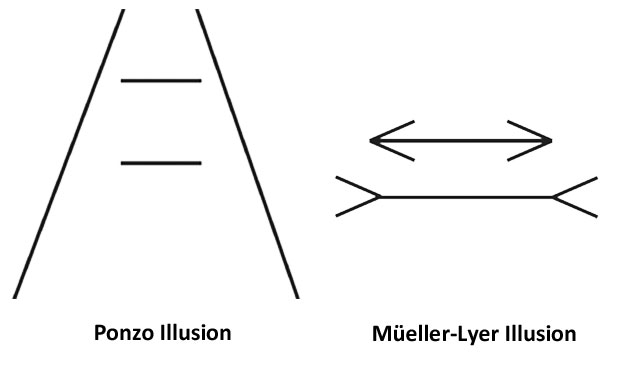I’m more stuffed than the turkey I just ate. But holiday hubris led me to overestimate my stomach’s capacity for deliciousness. Even though my stomach is saying uncle, I didn’t finish everything on my plate. Decisions, decisions. Hunker down and go for it? Save it for later? Throw it away? Give it to someone else? Feed [...]
I’m more stuffed than the turkey I just ate. But holiday hubris led me to overestimate my stomach’s capacity for deliciousness. Even though my stomach is saying uncle, I didn’t finish everything on my plate.
Decisions, decisions.
Hunker down and go for it? Save it for later? Throw it away? Give it to someone else? Feed it to the dog?
This debate is all for show. I know what I’m going to do. Even if the mashed potatoes begin to scud from my ear canal, I’m going to finish eating the food on my plate.
And this is exactly why you need to track of your food intake.
Surprise vomits
I lick my plate clean despite being one burp away from a pop-up vomit because I’m relying on an external cue (an empty plate) to tell me when to stop eating.
External cues exist beyond our bodies.
When do I stop drinking at a bar? Certainly not when I can’t even walk without tripping over the nothingness known as “air.” I stop drinking when the last call bell rings. External cue.
You stop eating the bowl of Fruity Pebbles when all of the Pebbles you poured have been neutralized. Only a cereal killer (lollollolol) would leave poured Pebbles to prune. You eat two Pop-Tarts (not one) because that’s how many are in the rectangular silver NASA package. And, as they say, once you pop the fun don’t stop. Err, wait, that’s the Pringles jingle. Oh well.
Hara hachi bu and internal cues
Relying on external cues is normal for Americans, but it’s not universal. The Okinawans, for example, use internal cues as their compass.
There’s a significant calorie gap between the point where an Okinawan says, “I’m no longer hungry,” and where an American says, “I’m full.” The Okinawans even have an expression for when to stop eating. They call the concept hara hachi bu—eating until you’re just 80 percent full.
~ Brian Wansink, Mindless Eating
Not surprisingly, internal cues exist within our bodies — things like satiety, fullness, and satiation. (I don’t know what my body is more numb towards: internal cues or politics.)
Although there’s great value to be had in continuing this this internal cue versus external cue conversation, what I’m writing isn’t inherently about these cues. There’s a bigger principle at play.
Your eating behaviors aren’t necessarily under your control.
You aren’t captain
When you rely on an external cue to tell you when to stop eating, you’re letting the world around you dictate your behavior. In other words, the conscious “you” that you identify with isn’t really in control of the situation.
This isn’t news. If you’re a fan of behavioral psychology, you know that your unconscious mind tends to rule your thoughts, behaviors, and decisions. I thought about fronting the last sentence with “whether you realize it or not”, but that’d be redundant. Of course you don’t realize it. That’s unconsciousness in a nutshell.
Your unconscious mind can be crazy effective. Ever pull into your driveway and not remember the last five minutes of the ride home? Like I said, crazy effective. But your unconscious mind is also impulsive, flawed, and biased.
Your eyes lie

Take a look at the two drinking glasses above. Which one contains more liquid? Seems like the tall glass, right? Wrong. The same amount of liquid is in both glasses.
Look at the two pictures below. Seems like one parallel line is bigger (in both pictures), right? Wrong. Both parallel lines are the same size (in both pictures).

If you get a ruler and test this, your conscious brain can override your unconscious mind in the future. You’d be able to say, “Both lines are the same size.” But, even then, your unconscious mind can’t unsee the lines as different sizes.
Perceptive flaws and food
These perceptive flaws bleed into your eating habits. People that use short thick glasses tend to drink more and underestimate their beverage consumption. The opposite holds true for food. Spreading food out makes tricks your body into thinking you’re eating more than you really are.
So if somebody typically eats a huge half-pound hamburger, and you give them a quarter-pound hamburger, they’ll eat it and still feel hungry. Rolls found, however, that if you make the quarter-pound hamburger look the same size as the half-pound hamburger, by adding lettuce, tomato, onion, and not squishing it down before serving it, the same hungry person will eat it and say he’s full. Even though it has many fewer calories than the half-pound burger, people will still rate themselves as equally full after lunch is over.
~ Brian Wansink, Mindless Eating
Visual fuckery is just one facet of how our unconscious minds’ fuck with our thoughts, behaviors, and decisions. This rabbit hole is deeper than a porn star.
Moral justification
There’s moral justification: when you do something good, you tend to feel like you deserve a reward. Food just happens to be one of those rewards.
- I ate my vegetables. Bring on the cheesecake!
- I helped a cat get down from a tree. I deserve a cookie!
- I went to the gym today. I can get away with eating this fried garbage!
HALO EFFECT
There’s the halo effect: you make sweeping generalizations about a food based on limited information. It’s soy, so it must be good!
PRIMING
There’s priming: the more you think about a food before you eat, the more you’ll eat when its time to eat. OH HOLY CHEAT MEAL HOW I NEED YOU NOW MORE THAN EVER I WAITED A WEEK TO SEE YOU.
MEMORY
There’s imperfect memory: most people can’t accurately recall how much bread they ate while at those restaurant chains that serve oh-so delicious free bread before the meal.
ILLUSORY SUPERIORITY
There’s illusory superiority: you overestimate your positive qualities and underestimate your negative qualities. The people that incorrectly recalled how much bread they ate were also the ones most confident about remembering how much bread they ate.
Unconscious problems
I could continue down the cognitive bias fast lane, but I’m sure you get the point. The unconscious brain isn’t perfect. It has flaws and biases. It’s also slave to habits.
Habits are repeated behaviors that you come to do without thought or effort, like biting your nails when you’re nervous. You don’t say, “I’m nervous. I’m going to bite my nails.” The nervousness triggers the behavior without your permission.
Say you always crave something sweet after dinner. This might be a real physiological signal — your body trying to satisfy a nutrient deficiency. But, chances are, it’s just habitual. Just like nervousness triggers nail biting, an empty plate triggers your sweet tooth.
Stopping your unconscious
If you have the cognitive absorption skills of a kumquat, lemme blast you with the theme(s) that are suffocating these words.
First, your unconscious mind is controlling what you do more than your conscious mind wants to admit. You have unconscious biases and habits that influence your eating behaviors.
Second, if you’re reading this, your unconscious mind hasn’t taken you to where you want to go (physically). It’s a broken GPS.
Third, unless you consciously intervene, you’re going to continue to let the broken GPS navigate your trip — a surefire way to end up somewhere you don’t want to be.
This is why you need to (consciously) track your food intake.
Counting calories
If you don’t consciously track your food intake, your unconscious mind will. No bueno. The classic way to override your unconscious mind and take conscious control: counting calories.
I wrote about the process of calorie counting in the latter half of this. The TL;DR being: you find out how many calories are in standard measurement of the food you want to eat, and then you measure how much of the food you eat.
Sounds about as exciting as watching a fruit fly live out its entire lifespan, right? Actually, not really. Watching a fruit fly’s vlog might be kind of cool. But there’s nothing cool about counting calories, which is why I have something important to tell you.
Calorie counting cheat codes
People usually fall into one of two factions upon hearing about calorie counting and food tracking. The first faction is excited. This faction tends to have a scientific and mathematical mind. Counting calories! How neat! I’ll make a spreadsheet! I’ll finally found how much I eat!
The second faction is bleeding from their sclera. This faction tends to have an artsy fartsy mystical mind. Counting calories. Shit sounds awful. Boring. Kill me now. Screw this “diet” stuff, I’m done. Too hard.
If you’re in the first faction, cool. Bye. You’ll win. If you’re in the second fashion, I have good news. Counting calories (at first) is less about absolute accuracy and more about awareness. Calorie counters end up winning NOT because their calculations are 100% correct, but, rather, because they stop mindlessly eating shit.
This is why I created Calorie Counting Cheat Codes. You can track your food intake (and increase you eating awareness) without gnarling into an obsessive compulsive muppet.
Pandering idiots
Often, you’ll come across people that bash calorie counting and food tracking. I’m willing to bet these people fall into one of two categories.
First, they are idiots pandering to the sexier headline as opposed to the harsher reality. The first rule of marketing: give the customers what they want. Most people don’t want to count calories.
Second, they are people with good intentions that, unfortunately, are too far removed from the beginner’s mind. I don’t need to count calories… anymore. I tracked my food intake for so long that it has become a part of my unconscious mind. But, just like learning how to tie your shoes, you have to go through some headache and confusion before that happens.
Even though Calorie Counting Cheat Codes makes tracking your food intake easier, activating your conscious mind requires intent, focus, and willpower. It isn’t something that’s going to “just happen.”
Calculate this equation: 433 + 642 = ?
You can’t solve this equation and masturbate at the same time.
P.S.
Beyond unconscious fuckery, there’s another reason you need to track your food intake.
Every human should only eat 1000 calories per day. Every human should eat 100 grams of carbohydrates per day. Every human needs to eat two pieces of fruit per day.
The above are absolute recommendations. But absolutes are bad. You need to avoid the universal recommendations, especially with how much energy you need to eat.
You need relatives. Recommendations that take into account where you are and where you’ve been. In other words: Eat 100 calories less than what you’re used to eating. Eat 50 grams of carbs less than what you’re used to eating.
Why? Read more here.
P.P.S.
If you’re interested in toppling further down the psychological rabbit hole, I recommend two different books.
- Thinking, Fast and Slow by Daniel Kahneman
- Mindless Eating by Brain Wansink
Keep in mind, however, that Wansink has come under fire recently for some of his research. He’s off the grid. I did use some of the information in his book to write the article above, but I stand by the material I referenced.